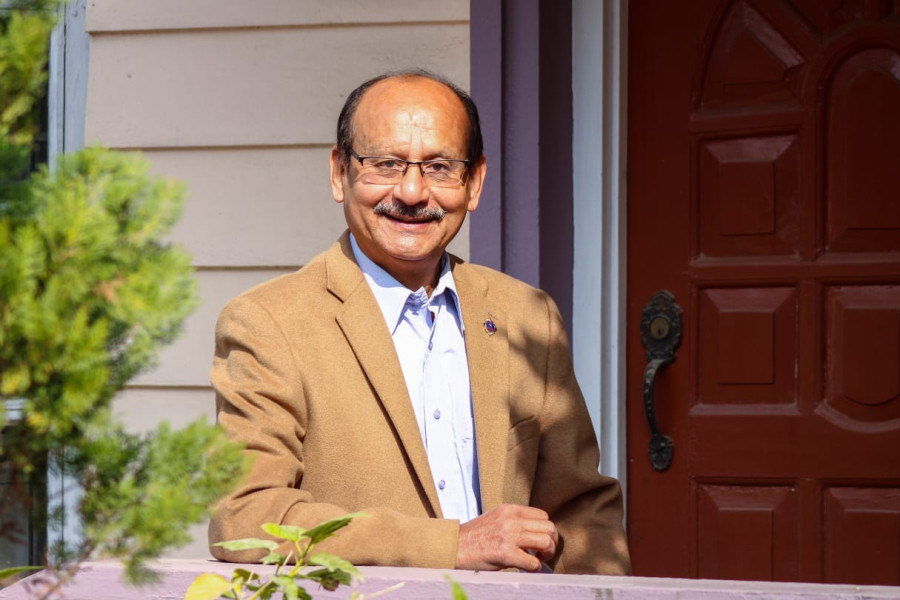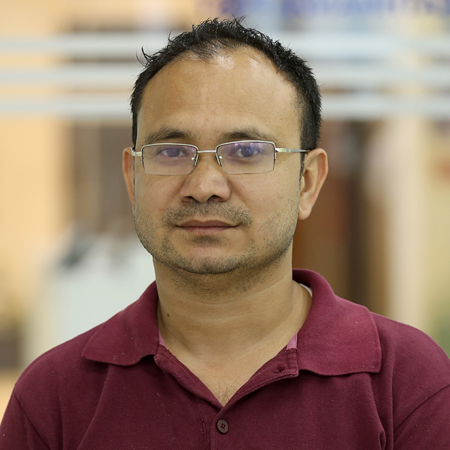Interviews
‘As the case is open, top leaders may still be prosecuted’
Former Deputy Inspector General Hemanta Malla Thakuri on different dimensions of the fake Bhutanese refugee scam and its investigation.
Anup Ojha & Prithivi Man Shrestha
Senior politicians, home ministry officials and other top-ranking individuals have been prosecuted in the Bhutanese refugee scam after a two-month-long Nepal Police investigation. Former Deputy Inspector General Hemanta Malla Thakuri has been closely following the scam and the investigation of one of the biggest high-profile criminal cases in Nepal’s history. The Post’s Prithvi Man Shrestha and Anup Ojha talked to Malla about different dimensions of the scam and its investigation. Excerpts:
What is your assessment of the police investigation of the fake Bhutanese refugee scam?
These are high-profile criminal cases involving senior political and bureaucratic leaders. In such cases, an investigation cannot move forward properly without the government’s support. I had suspected from the very beginning that the investigation would reach mid-level political leadership but not top leadership even though questions were also raised about their possible involvement. That is exactly what happened.
Who are you hinting at when you say the investigation could not touch the top leadership?
While talking about the top leadership, I am not only talking about top political leaders but also members of their core groups including family members. Why I say this is because there was a transfer of home secretary to commit frauds. I don’t think the Home Minister alone was involved in the transfer. Higher political leaders also get involved in such transfers.
Isn’t it possible that the police didn’t prosecute top political leaders as they were not directly involved?
In organised crimes, there are criminals in different layers of hierarchy.
If one bit of information is misplaced, it is difficult to establish linkage among the hierarchies and it helps some evade prosecution. So I had been arguing that investigation in this case should be carried out differently.
Can you explain this ‘different’ approach?
In criminal cases involving high-profile people, victims often face threats. In such cases, the Supreme Court has issued a directive which allows the police to protect the secrecy of the victims. Only if they feel secure will victims and eye-witnesses speak openly about the crime. This was not done in the fake Bhutanese refugees case.
Do you think the police got much political support to probe this scam?
Top Nepali Congress and CPN-UML leaders are saying that their people were wrongly dragged into the scam. The Congress is in this government. I don’t expect the top Congress leadership to provide any political support to investigate the scam. I believe the current investigation took place because of constant media pressure. Amid such pressure, top leaders might have thought that sacrificing two former ministers would be enough to halt the investigation and further prosecution of higher-ups.
Some of those questioned have said the near and dear ones of top Congress and UML leaders pocketed money from various people. Why don’t the police investigate them?
In corruption cases, high-profile people usually don’t leave many footprints. Police could have inquired about them after they were named as beneficiaries in the scam. I think the case is still alive and there is room for prosecution of higher leadership too if there is enough evidence. Half of the accused are still at large. When they are also arrested, their statements might also incriminate top leaders. There is no need to hasten the prosecution of people close to top political leaders in the absence of good evidence. It is better to wait for the arrest of those who are at large and collect strong evidence. The court also seeks evidence-based investigation instead of statement-based investigation. As the case is still alive, we need not worry why top leaders have not been prosecuted.
Questions have also been raised about the conduct of the current Inspector General of Police. Reports emerged about competition among police officers to take credit for the investigation. How do you see this episode?
It is an administrative mistake. The IGP is an institution and whatever dispute has come to light in Nepal Police, it harms the credibility of the police. A committee can be formed to find out how such administrative mistakes took place.
As many as 30 people were prosecuted for four different types of crimes. Could they face more criminal charges?
The scam started with fraud and it is also related to human trafficking, forgery, organised crime, money laundering and corruption. These crimes are interrelated.
Is it the biggest case of organised crime in Nepal’s history?
There might have been bigger cases in the past. But it is definitely a very high profile case involving senior political leaders and the Home Ministry. It is also an issue directly connected to the international community. Other countries have room to doubt Nepal’s credibility.
How will the involvement of the Home Ministry affect Nepal’s international standing?
The Home Ministry is responsible for running 77 District Administration Offices which issue citizenship certificates as well as many other government documents. The ministry is in charge of Nepal Police which is responsible for law and order. It also handles the Armed Police Force which is responsible for border security. Immigration offices come under it.
The Home Ministry does work directly related to the citizens. If its leadership and entire administration is involved in forgery, how will the international community trust the documents issued by the offices under it? If you submit your documents in a foreign country’s embassy, they will try to re-verify the documents many times, inviting red tape. Nepali citizens could now have a tough time travelling abroad. Their crimes have affected the credibility of the Nepali state, which in turn will affect the Nepali citizens.
How do you expect the US, the largest recipient of the genuine Bhutanese refugees from Nepal, to react to the scam?
If the Home Ministry’s machinery itself is involved in creating fake refugees, the US has reasons to be concerned. Nepali leaders have been irresponsible. For example, UML Chairperson and Former Prime Minister KP Sharma Oli reportedly said he has a list of about 300 fake refugees who were resettled in the US in the past. If a former prime minister and leader of the main opposition says so, it raises questions about the credibility of past verification of Bhutanese refugees, which is dangerous.
What if the US now asks Nepal to conduct an inquiry on past verification? The US has now room to doubt if Nepalis, Chinese, Bangladeshi or citizens of other countries also entered the US in the guise of Bhutanese refugees.
The US Federal Bureau of Investigation (FBI) is also supposedly involved in the probe. Why should the FBI be concerned with this scam?
Former Prime Minister Oli reportedly said that he has proof of 300 fake Bhutanese refugees resettling in a third country. The FBI has reason to be concerned if a person on its wanted list has entered the US in the guise of Bhutanese refugees. If the ex-prime minister says such a thing, it creates doubts. So top political leaders should be careful while speaking on such a sensitive topic.




 13.12°C Kathmandu
13.12°C Kathmandu.jpg)





.jpg&w=200&height=120)







